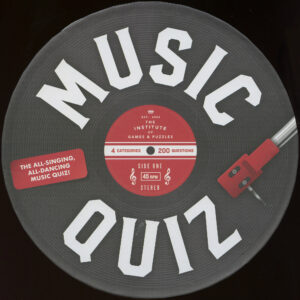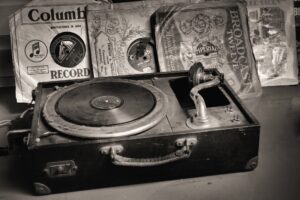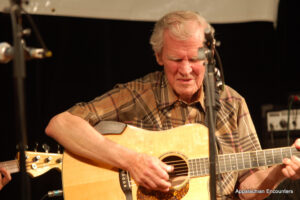Jimmie Rodgers was an important figure in country music despite the fact that he only lived until his mid thirties. The first paragraph of the Wikipedia entry sums it up nicely:
James Charles “Jimmie” Rodgers (September 8, 1897 – May 26, 1933) was an American country singer in the early 20th century known most widely for his rhythmic yodeling. Among the first country music superstars and pioneers, Rodgers was also known as “The Singing Brakeman”, “The Blue Yodeler”, and “The Father of Country Music”.
A nicely written and affectionate bio is available at Rodgers’ website. If the trumpet in Blue Yodel No. 9 sounds familiar, it is because it is Louie Armstrong. Armstrong himself tells the story to Johnny Cash before the two play the song, with Cash playing Rogers’ part. Armstrong describes it in a very matter of fact way, but the idea of a southern white country singer and African American jazz artist playing together seems strange from today’s perspective. Armstrong’s wife, piano player Lil Hardin, apparently also was in the session.
Rodgers, who is in the Rock and Roll Hall of Fame, died from TB in 1933. The bio there includes a quote from Bob Dylan:
Jimmie Rodgers, of course, is one of the guiding lights of the Twentieth Century, whose way with song has always been an inspiration to those of us who have followed the path….He was a performer of force without precedent with a sound as lonesome and mystical as it was dynamic. He gives hope to the vanquished and humility to the mighty.” is not related to a pop singer of the same name who hit the scene in the 1950s.
Three from Rodgers:
T for Texas (aka Blue Yodel): Rodgers’ biggest hit.










